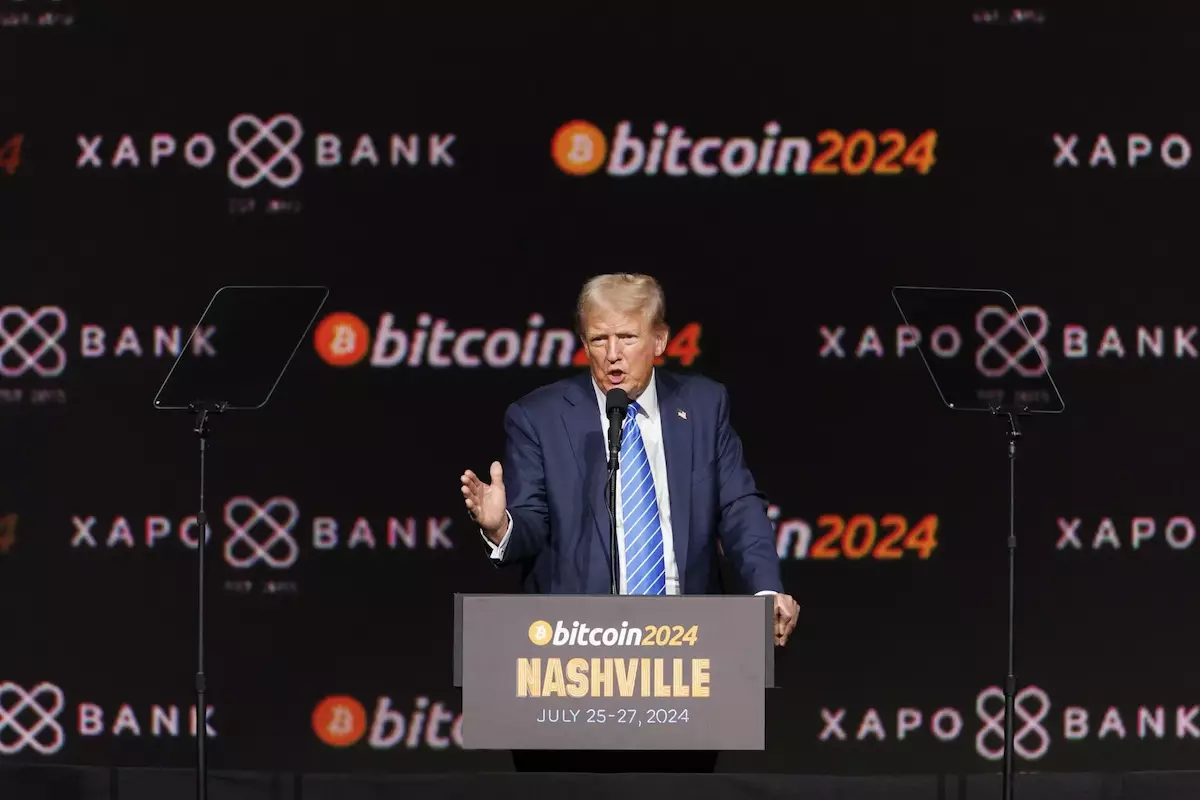The political landscape surrounding cryptocurrencies and blockchain technology is as dynamic as the technologies themselves. The recent elections and the possibility of Donald Trump returning to the presidency have sparked conversations about how his leadership could reshape the Web3 gaming industry, presenting both opportunities for innovation and potential challenges in regulatory frameworks.
In 2021, Donald Trump publicly criticized Bitcoin, labeling it a “scam” and voicing fears that it might threaten the US dollar’s stability. However, this perspective has seemingly evolved, with indications that a future Trump administration could embrace more favorable policies toward digital assets. This is notable in a climate where many nations are crafting crypto-friendly regulations that facilitate blockchain integration.
The juxtaposition of Trump’s earlier skepticism and his current inclination to engage with the cryptocurrency ecosystem sheds light on the broader political narrative surrounding digital currencies. As countries around the world develop frameworks that support blockchain, a shift in American policy could signify a pivotal moment for Web3 gaming.
Web3 gaming stands at the intersection of innovation, community engagement, and digital ownership, relying heavily on blockchain technology for its operations. With a prospective Trump administration poised to relax regulatory constraints, there is a significant opportunity for growth and creativity within this space. The alignment of political support and technological advancement can catalyze a more robust environment for developers and gamers alike.
Currently, Web3 gaming hinges on tokenized economies, making clarity in regulation essential. By minimizing legal barriers, developers would be able to innovate more freely and players could engage in digital ownership without the looming threat of enforcement actions. The implications of such changes would be profound, particularly considering how regulatory clarity can quicken the pace of development and investment in the gaming sector.
The volatility of the cryptocurrency market during Trump’s first term illustrates the complex relationship between governance and digital assets. From the meteoric rise of Bitcoin from $1,000 to nearly $20,000 in 2017, followed by the subsequent corrections in 2018 and stabilization in 2019, the market showcased resilience despite turbulent waters. Even amid the COVID-19 pandemic, the market all but exploded, leading to new highs.
Understanding this history is crucial as it provides context to the potential outcomes of a new Trump presidency. If policies are implemented to encourage blockchain innovation, the future of Web3 gaming could reflect the upswing seen during his previous term.
One of the most significant elements of a Trump-led administration would be the potential replacement of current SEC Chair Gary Gensler. Trump’s vocal criticism of Gensler’s regulatory approach suggests that his administration might pivot towards a more crypto-enthusiastic stance. This could lower the barriers for cryptocurrency issuance and trading within Web3 gaming platforms, allowing for legitimate growth in an already burgeoning market.
A supportive SEC can engender confidence among investors, facilitating a wave of new investments in Web3 gaming. This climate of acceptance could shift public perception and encourage stronger engagement with decentralized gaming platforms. The influx of venture capital can also accelerate the development of innovative solutions within the industry.
It is essential to recognize the international implications of the United States adopting a favorable stance toward blockchain technologies. Historically, U.S. regulatory frameworks have influenced global standards; thus, a shift towards pro-cryptocurrency policies could reverberate worldwide. Other nations may take cues from American legislation, either by aligning with or contrasting against it, creating a mosaic of regulatory approaches in the crypto space.
This could lead to collaborative opportunities for international ventures or, conversely, tensions stemming from conflicting regulations. The global Web3 gaming landscape would undoubtedly shift, necessitating that stakeholders adapt to an ever-evolving environment.
The potential return of Donald Trump to the White House could herald a transformative phase for Web3 gaming. If he pursues a pro-crypto agenda, the sector may witness a surge of investment, clearer regulations, and heightened innovation. However, the specifics of this evolution remain uncertain, and stakeholders must stay vigilant to navigate the challenges that accompany rapid growth.
Ultimately, the future of Web3 gaming lies at a crossroads, underlining the intertwined nature of political support and technological advancement. Whether these changes will usher in a new era of gaming or lead to regulatory pitfalls will depend on the decisions made in the coming months. As the landscape continues to change, developers, gamers, and investors must be prepared to adapt to a new digital frontier.








